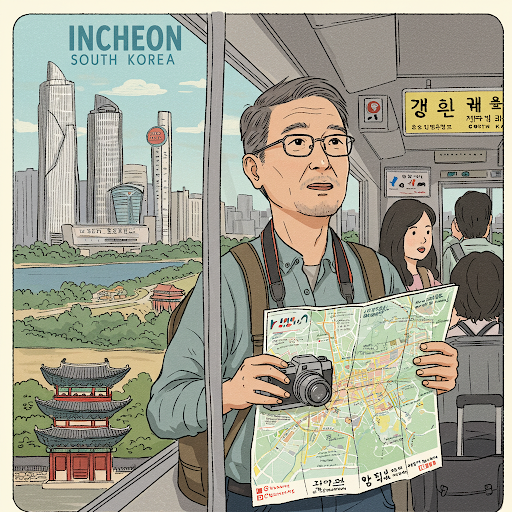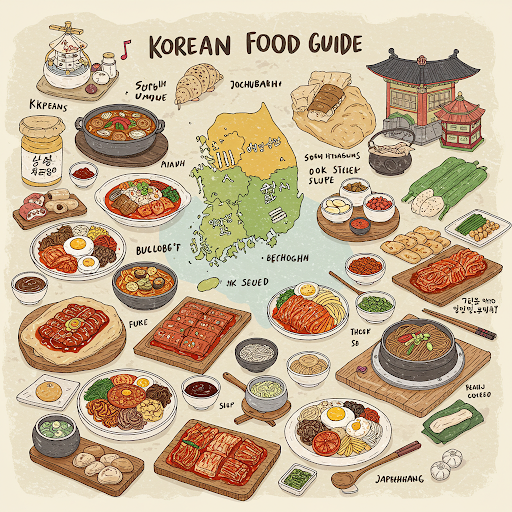Essential Guide for Foreigners Staying in Hotels in Korea
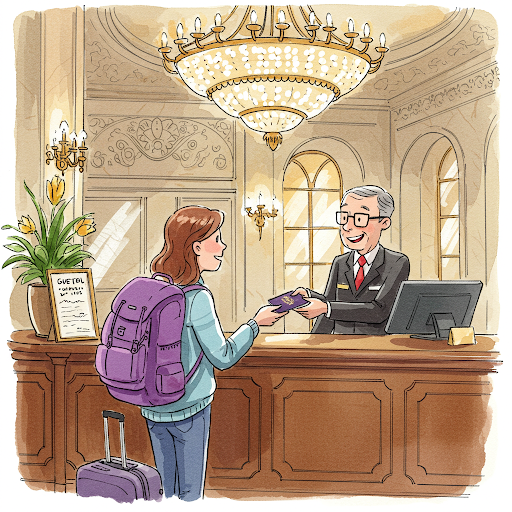
— Avoid Awkward Moments and Enjoy a Comfortable Journey
As an experienced expat living in Korea for many years, I fully understand the "cultural clashes" foreign tourists may face when staying in local hotels—from the mysterious waste-sorting rules to unexpected fines. This article will reveal the unique rules and hidden services of Korean hotels in the most practical way, helping you avoid pitfalls and enjoy a hassle-free stay!
1. Preparation Before Check-In
- Confirm the Hotel Location
Recommendations:
- Use the Korean map app Naver Map 네이버지도 for precise navigation to avoid getting lost.

- Use the translation app Papago for English/Chinese-to-Korean translations to overcome language barriers.

2. Essential Items Checklist
- Disposable Items:
Korean hotels do not provide toothbrushes/toothpaste/slippers (due to environmental regulations). Please bring your own or purchase them at the front desk (around 2,000 KRW/set).
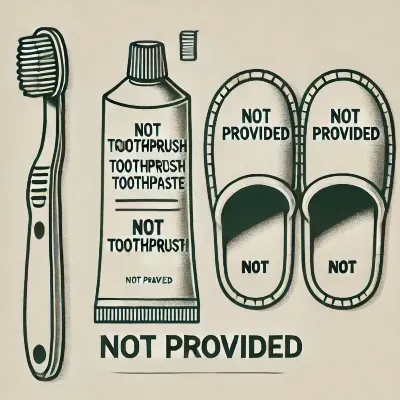
- Power Adapter:
Korea uses round two-pin outlets (the same as France, Germany, Australia, Greece, and Turkey). The front desk may lend them in limited quantities, but it’s recommended to bring your own.
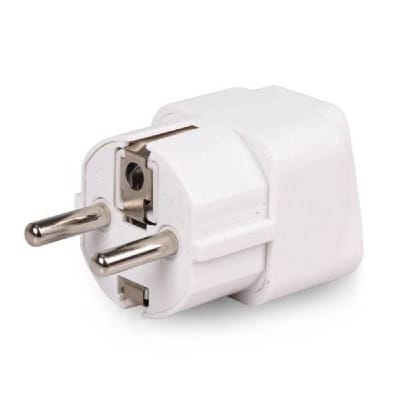
- Korean Address Card:
Carry a Korean address card of your hotel for easy taxi driver navigation.
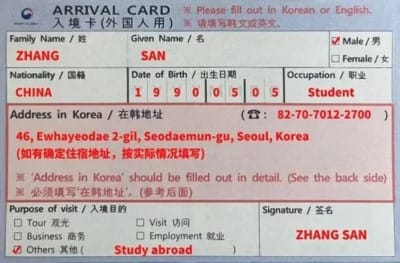
2. Pre-Check-In Information: Follow the Rules of Korean Hotels
1. Check-In/Check-Out Time Differences
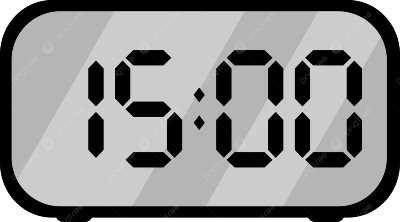
- Later Check-In: Most hotels in Korea allow check-in after 3 PM (some hotels allow early luggage storage).
- Strict Check-Out Time: Usually, check-out is required before 12 PM. Late check-outs may incur additional charges.
- Check-Out Process: Be sure to notify the front desk when checking out and settle any outstanding fees. Also, return your room card and keys to the front desk.
- Early Morning Check-In May Be Charged as the Previous Night: If checking in during the early hours, you may be charged for the entire room rate for the previous night.
The above information regarding hotel check-in and check-out, as well as early check-in, is for reference only. Hotel policies may vary, so it’s recommended to inquire at the front desk in advance.
2. Identity Registration and Deposit
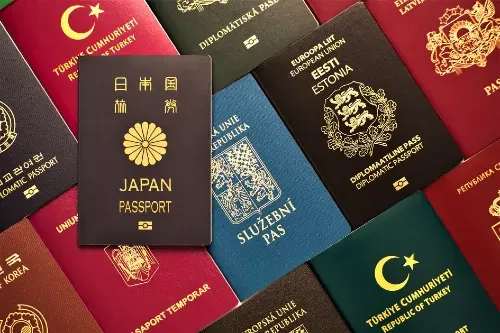
- Passport Registration Required for Check-In: All guests (including children) must register their passport. Overnight visitors must also be registered, or a fine may apply.
- Deposit Payment:

- Credit Card Pre-Authorization: Common in international chain hotels (most support international credit cards).
- Cash Deposit: Some guesthouses or small hotels require a cash deposit (10,000-100,000 KRW, refunded at check-out).
Recommendations:
- Confirm in Advance: When booking a hotel, it's recommended to check the deposit policy or directly contact the hotel to confirm the deposit amount and payment method.
- Prepare Funds: To avoid insufficient funds at check-in, it's recommended to have enough credit limit or cash for the deposit.
- Check Reservation Information: Check the deposit policy through booking platforms (like klook.com). Some platforms will list deposit details on the booking confirmation page.
3. Properly Store Your Room Card
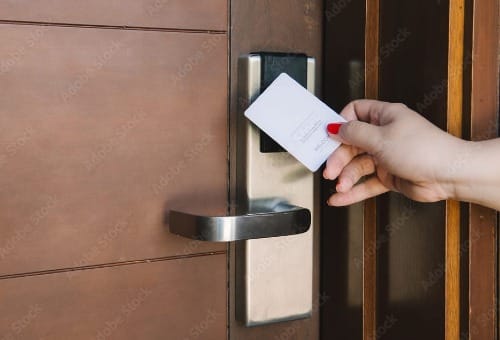
Most hotels in Korea use electronic room cards. If you lose your room card, you may need to pay an additional fee.
Additionally, avoid keeping your room card near other electronic devices to prevent magnetic interference, which may demagnetize your room card.
3. Four Common Mistakes Foreigners Make When Staying in Korea
1. Smoking Fines:
In Korea, smoking indoors may result in a fine ranging from 100,000 to 300,000 KRW. Smoke detectors are highly sensitive (even e-cigarettes are not allowed!).
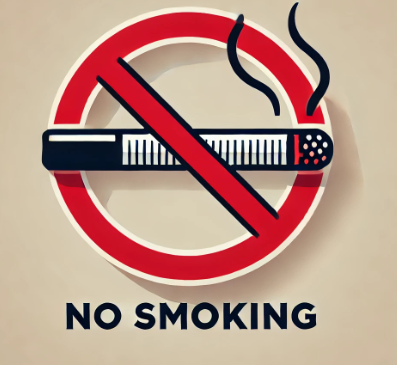
2. Food Restrictions:
It is prohibited to eat food with strong odors, such as kimchi stew, in the room. This may result in a warning from the hotel or even additional cleaning fees.
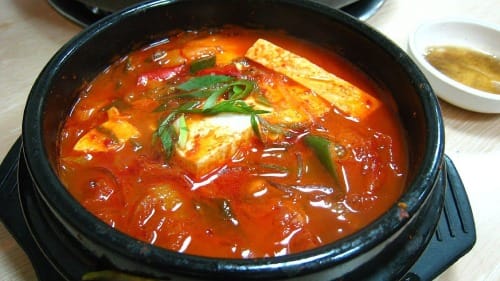
3. Waste Sorting Errors:
Korea has strict waste sorting regulations, primarily divided into four categories:
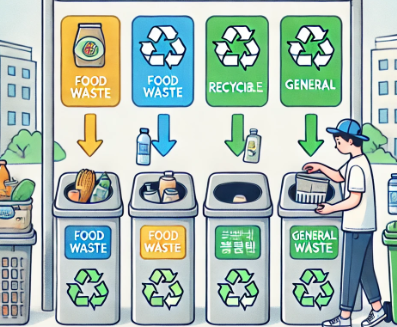
- General Waste: Includes common household trash like tissues, damaged clothes, and dirty plastic items. General waste must be disposed of using paid trash bags (blue, available at convenience stores).

- Recyclable Waste: Includes plastic bottles, glass bottles, metal cans, and paper, which must be cleaned before disposal. Different recyclable items may have different disposal methods (e.g., paper requires a special bag).
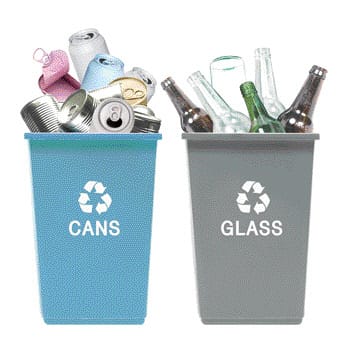
- Food Waste: Includes leftover food and food residue on packaging. Korea has a unique food waste processing system, where food waste is typically disposed of in special food waste bags (yellow, available at convenience stores), which are then used for composting or energy recovery.

- Hazardous Waste: Includes items such as batteries, fluorescent light tubes, medications, and cleaning agents, which require special handling and separate disposal.
4. Shoe Removal Culture:
In traditional Korean houses (한옥) or some guesthouses, it is necessary to remove your shoes at the entrance and wear provided slippers or socks indoors. Note that some places may require you to wear slippers.
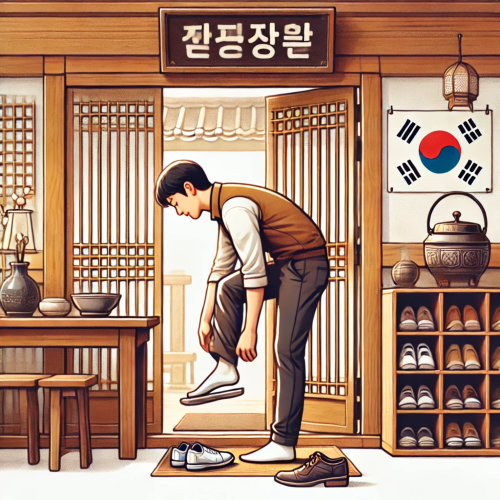
4. Useful Tips
Tip 1: Before staying at a hotel, make sure to buy common medicines like cold medicine and band-aids during the day.
Pharmacies in Korea close at night, and convenience stores only sell basic medications. It’s best to purchase your regular medicines during the day.
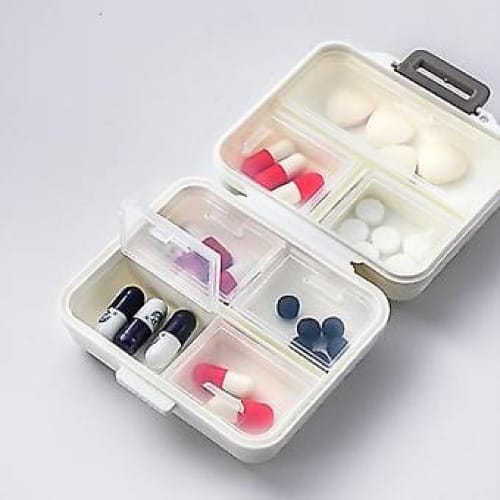
Tip 2: If you lose something in the hotel, immediately contact the front desk. If you need to review security footage, you must report it to the police (call 112).

Tip 3: Summer (July-August), Lunar New Year (January or February), and Autumn (September-October)
During these three periods, hotel prices in places like Seoul, Busan, and Jeju Island usually increase. It’s recommended to book at least three months in advance.
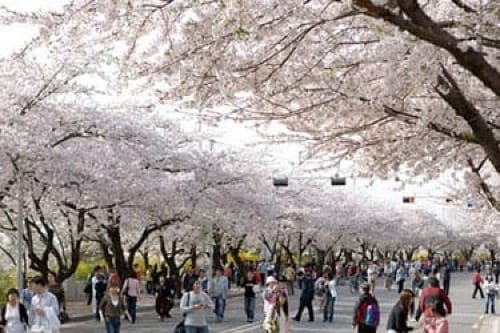
5. Conclusion
By following these guidelines, you’ll avoid most potential issues and enjoy a safe and authentic accommodation experience in Korea! If you have any questions, feel free to contact your tour guide or hotel front desk. Have a wonderful trip! 🏨✨

